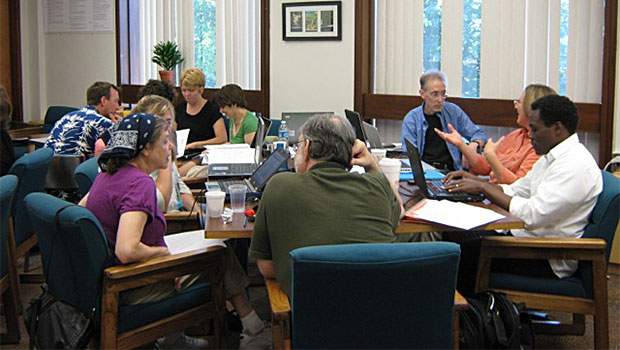Jessica McCaughey is an Assistant Professor at George Washington University in Washington, DC, where she teaches and writes about the intersections of academic, creative, and professional writing. You can reach her at jessmcc@gwu.edu and find her online at jessicamccaughey.com.
When it comes to communicating with students, all writing instructors face two hurdles:
- Students have different learning styles, so not all students understand or retain the written word in the same way, and
- Sometimes it’s just easier to speak than it is to write.
The latter is a challenge that becomes especially clear when I find myself crafting embarrassingly long emails that could have been presented orally and visually quite easily. I have—although I’m really not proud of it—taken four paragraphs to clarify a homework assignment. I have written multi-page emails detailing the wonder that is the inter-library loan system. Most writers—and writing instructors—I know love the quote, “I would have written a shorter letter, but I did not have the time,” by French philosopher and mathematician Blaise Pascal. (You may have heard a similar quote falsely attributed to Mark Twain.) Concision takes time in writing, especially writing that is intended to teach in some way. And so it was with genuine pleasure that I discovered and began implementing the use of Jing, a program that supplements and improves the way I teach writing in so many ways.




